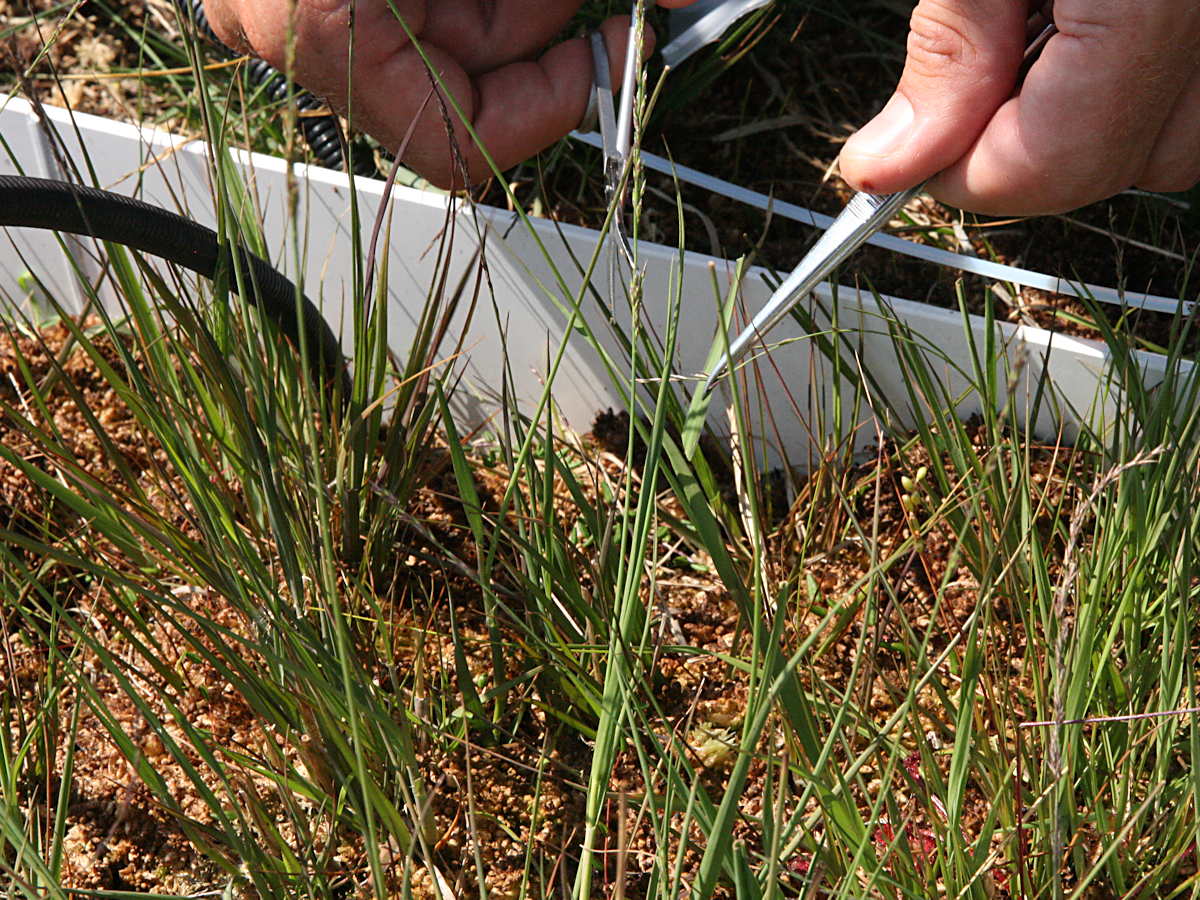Using enriched carbon dioxide (13CO2), we could demonstrate in a pulse-labelling experiment at a Sphagnum farming site in Northwestern Germany that peat mosses (Sphagnum) maintain their important role in carbon retention even under the extraordinary hot and dry conditions during the European heatwave 2018. While they took up less carbon in comparison to vascular plant species purple moor grass (Molinia), they stored up to half of the sequestered label until the end of the experiment (140 days) and Molinia lost most of the sequestered label via respiration. Interestingly, label could be detected in all investigated carbon pools (including dissolved and emitted CO2 and CH4, as well as soil microbial biomass), except for the dissolved organic carbon (DOC). An additional warming treatment using open top chambers (OTC) showed only minor impact on carbon allocation, presumably due to the already hot conditions.
Scroll to top

![[Translate to English:] [Translate to English:]](/media/_processed_/6/4/csm_titel_CO2Kampagne8_afeea2273e.png)
![[Translate to English:] [Translate to English:]](/media/_processed_/4/1/csm_titel_93px_CO2Kampagne8_9b0f3354d4.png)

![[Translate to English:] Logo des Bundesministerium für Ernährung und Landwirtschaft](/media/allgemein/logos/BMEL_Logo.svg)